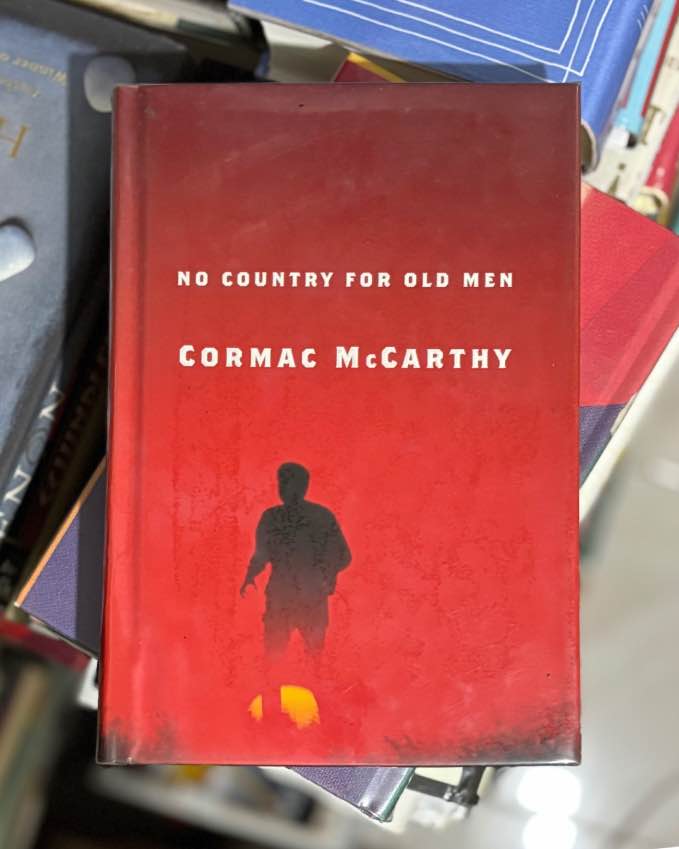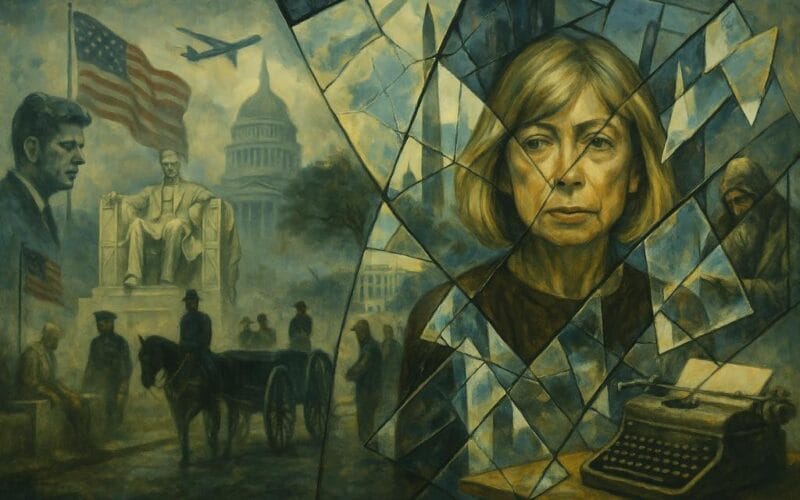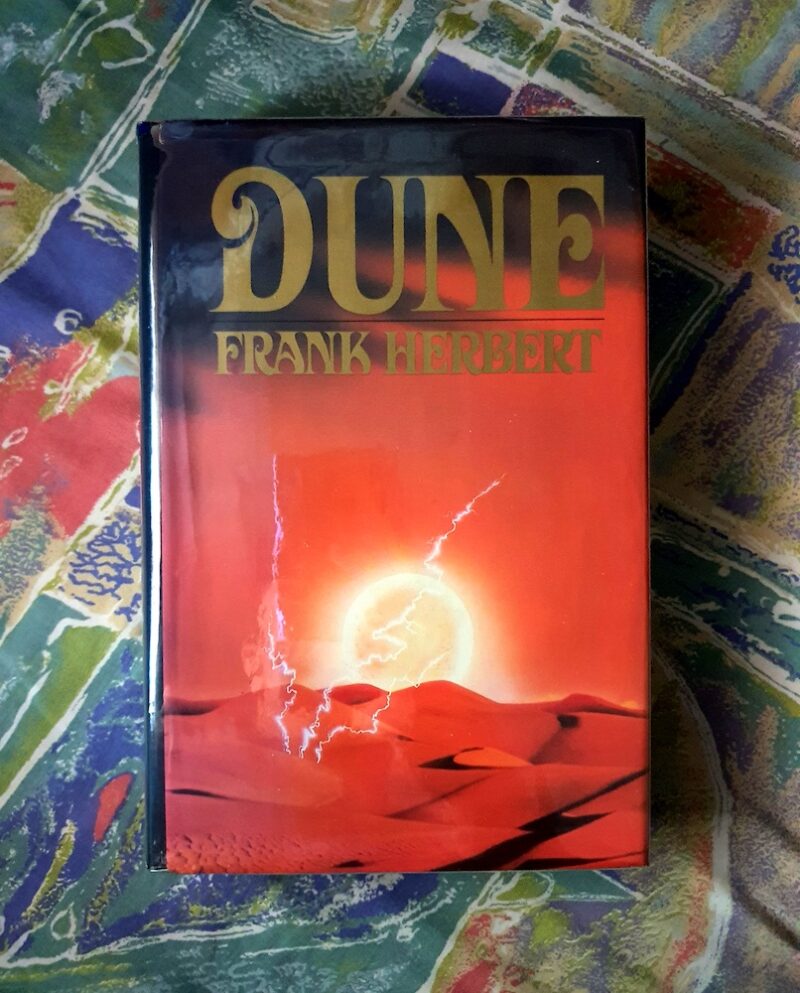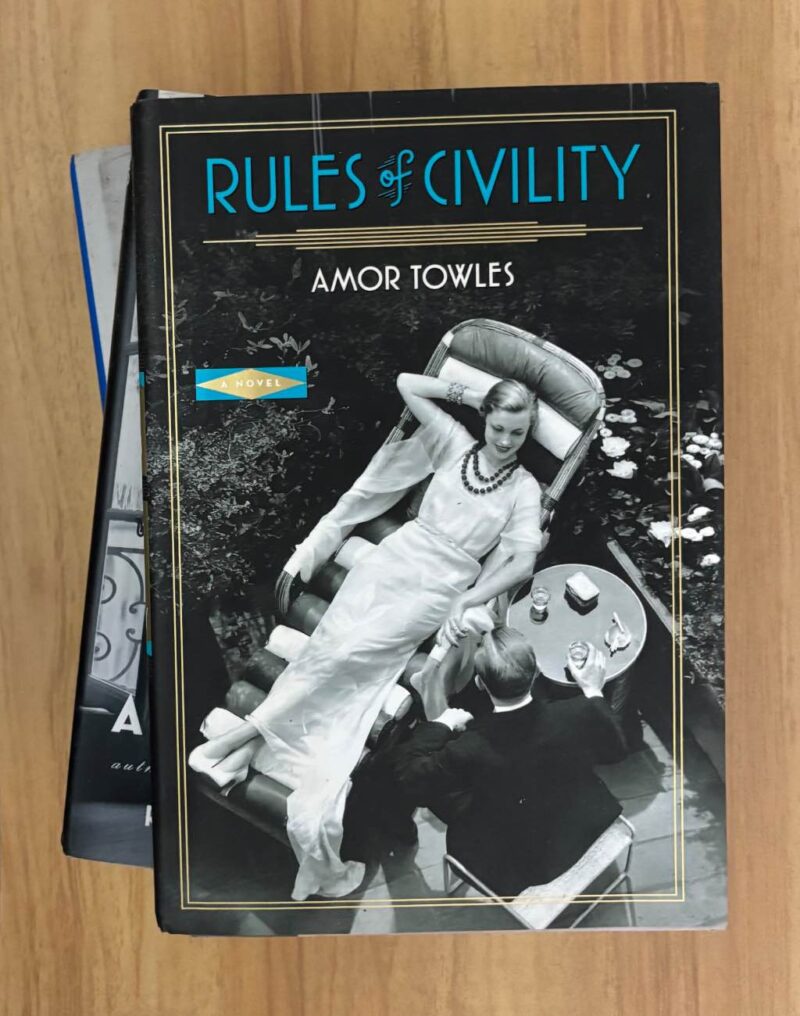Cormac McCarthy’s No Country for Old Men (2005) is a book that lingers long after the last page is turned. It is a masterful exploration of fate and morality set against the harsh backdrop of 1980 West Texas, in a book where traditional narrative elements, like good versus evil, blur into a darker, more complex examination of morality, violence, and fate.
McCarthy’s sparse prose and hauntingly vivid imagery invite readers into a world that feels both familiar and terrifyingly alien—a world where choices seem futile and violence is an inevitable force. Through this lens, readers dive into the novel’s deeper layers, analyzing its core themes from a reflective point of view.
In 2007, the book was skillfully adapted into a film by the Coen Brothers, which adds a visual dimension to McCarthy’s narrative, translating the book’s themes of uncertainty and violence into a visual feast. The Coen Brothers’ reputation for crafting thought-provoking cinema shines through here, presenting a seamless blend of storytelling and visual artistry that honors McCarthy’s original work.

Exploring the Book’s Themes
From the start, the book challenges readers to question their understanding of morality. In McCarthy’s world, there are no clear heroes or villains, only individuals grappling with the weight of their decisions.
The book’s characters are propelled by their choices, yet fate intervenes, often with cruel indifference. As a reader, you can’t help but wonder: are these characters truly in control of their lives, or are they merely at the mercy of an uncaring universe?
Free Will and Moral Ambiguity
The book’s exploration of fate versus free will resonates deeply, forcing us to reflect on the limits of control we have in our lives. Characters often find themselves in situations where traditional morality provides no clear guidance. Each choice the characters make—no matter how seemingly insignificant—has profound consequences, often leading to unexpected and tragic outcomes. This lack of clarity allows actions driven by necessity or desperation to blur the established order of ethics.
McCarthy’s book questions the conventional lines between good and evil. It’s not just about distinguishing right from wrong but about understanding the complex reality faced by individuals caught in situations fraught with ethical dilemmas. The moral ambiguity explored in the book encourages us to reflect on our own lives and question the extent to which we can shape our own destinies.
The Symbolism of Violence
Violence is inescapable in No Country for Old Men, but McCarthy’s treatment of it goes beyond mere brutality. For the reader, the violence becomes symbolic, a lens through which the rawest aspects of human nature are revealed. The characters are caught in cycles of violence, but this is not simply for the sake of action or shock value. Instead, it serves to expose the fragility of civilization and the thin veneer separating order from chaos.
The novel seems to suggest that violence is not a departure from humanity but a part of it—a force lurking beneath the surface of even the most civilized society. As you turn the pages, you may find yourself contemplating whether McCarthy is depicting a world where violence is not only inevitable but also necessary for survival. This unsettling idea leaves a lasting impression, challenging readers to think more deeply about the darker facets of humanity.
Randomness Versus Predestination
The book also examines the dynamic between the forces of luck and individual destiny. Fate and chance play significant roles, such as when Llewelyn Moss, the protagonist, discovers a briefcase of money, setting off a chaotic chain of events. While some outcomes appear predetermined, there is constant tension between destiny and one’s ability to make meaningful choices.
McCarthy further illustrates this tension by showing how actions undertaken with specific intentions can yield unintended results. Set against the backdrop of a Neo-Western crime thriller, the book portrays a cat-and-mouse game where every decision leads to unforeseen consequences. This exploration of the interplay between randomness and predestination underscores the complexity of human agency within a seemingly fated narrative.
Analyzing the Book’s Complex Characters
Sheriff Ed Tom Bell is a world-weary lawman grappling with the changing landscape of crime in West Texas, where violence seems to escalate with every passing day. Llewelyn Moss, a Vietnam veteran and welder, stumbles upon a drug deal gone wrong and makes a fateful decision to take the money, leading him on a desperate run from ruthless killers. Anton Chigurh, the embodiment of cold-blooded evil, is a hitman hired to retrieve the stolen cash, leaving a trail of death and destruction in his wake.
These three main characters’ paths intertwine in a deadly game of cat-and-mouse, where survival depends on instinct, luck, and the ability to make impossible choices. Adding to the tension are Llewelyn’s wife, Carla Jean, who becomes a target, and Carson Wells, another hitman who enters the fray.
The Elusive Hero: Moss and the Gray Area of His Choices

Moss, as the novel’s central figure, is far from a conventional hero. He is driven by a mix of self-interest and survival, making choices that continually blur the line between right and wrong. As readers, we are drawn to Moss because of his flaws—he is neither purely good nor irredeemably bad. Instead, he occupies a moral gray area that reflects the complexity of real life’s decisions.
Moss’s journey challenges our understanding of what it means to be a hero. In many ways, he defies the heroic archetype, making choices that are pragmatic rather than noble. This departure from the archetypal hero prompts us to question our definitions of heroism—whether a hero must always act out of virtue or if survival itself can be a form of heroism.
Ultimately, Moss’s fate serves as a cautionary tale. Despite his resourcefulness and determination, he becomes entangled in a web of violence he cannot control. His story highlights the fragility of life and the unpredictable nature of consequences, reminding us that even the most determined individuals can be swept away by forces beyond their control.
Anton Chigurh: The Embodiment of Relentless Evil
One of the most enigmatic and terrifying characters in recent times is Anton Chigurh, a relentless force of violence and chaos. Chigurh’s presence in the book is chilling, not only because of his actions but because of what he represents. He is not a villain in the traditional sense—there’s no clear motivation or backstory to explain his behavior. Instead, he is a force of nature, a manifestation of inevitability and death, moving through the narrative with cold, methodical precision.
Chigurh’s actions provoke contemplation on the nature of evil and its inevitability. Through his actions, he defies expectations by maintaining a chilling consistency in his worldview. He doesn’t seek power, revenge, or wealth in a conventional sense. Instead, he views himself as an instrument of fate, using a coin toss to determine the fate of his victims. This ritualistic use of chance as a determinant of life or death is central to his identity.
Chigurh is a character that lingers in the mind, forcing us to grapple with the nature of evil itself. He serves as a stark reminder that evil need not have a rational basis. As McCarthy portrays him, Chigurh is more than a mere villain; he is a symbol of the unpredictability of life and the limited extent to which individuals control their destinies.
Sheriff Bell’s Voice
Sheriff Ed Tom Bell, an aging lawman in West Texas, grapples with a world seemingly gone mad. He witnesses escalating violence and a decay of moral values, leaving him longing for a simpler past where law and order prevailed. Bell’s internal struggle reflects a dissonance between his traditional beliefs and the chaotic reality surrounding him, a world where senseless brutality has become the norm. He feels increasingly out of touch, a relic of a bygone era.
Sheriff Bell’s voice taps into universal concerns about the fragility of order, engaging readers with questions about humanity’s capacity to confront darkness and adapt to ongoing change. It captures a broader cultural uncertainty, an age-old conflict between past and present. His interactions with the younger generation, like Deputy Wendell, highlight this generational divide and the fading of traditional ideals.
While Bell’s narrative is steeped in nostalgia, it transcends mere criticism of the present. Bell represents a yearning for order and stability in a world that seems increasingly defined by chaos and unpredictability, leaving readers to ponder the fragility of their own moral compass. His internal conflict serves as a lens through which the enduring complexities of moral choices are explored in the book.
The Bleak Landscape as a Character
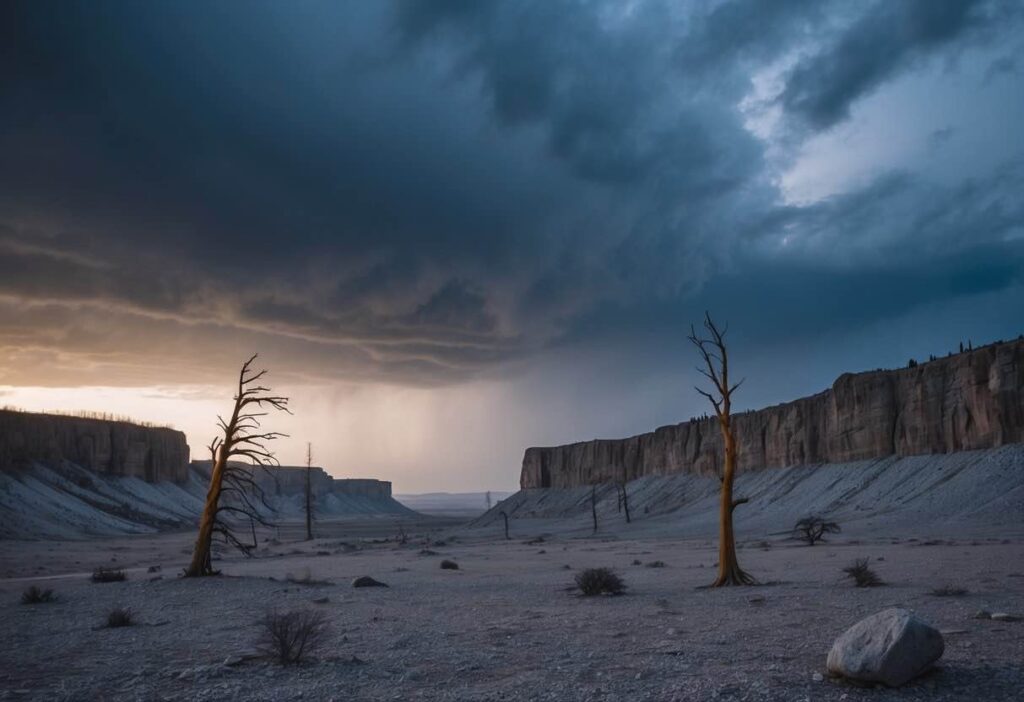
The harsh, desolate landscape of Texas in the book plays an essential role, almost becoming a character in itself. McCarthy’s descriptions of the barren, unforgiving terrain mirror the emotional desolation of the characters, heightening the novel’s bleak atmosphere. The landscape serves as a constant reminder of the indifference of nature—no matter how much the characters struggle, they are powerless against the vast, uncaring forces that surround them.
Set against the backdrop of 1980 West Texas, the barren, sun-scorched desert becomes a battleground where human desires clash violently. Its unforgiving nature mirrors the relentless pursuit of wealth and power seen in the aftermath of a drug deal gone wrong. The vast open spaces, stretching from the Rio Grande to El Paso, offer little solace or shelter.
While reading the book, we are invited to reflect on how the environment shapes the characters’ fates. The emptiness of the landscape highlights the novel’s exploration of isolation and hopelessness, reinforcing key themes in the book.
An Open-Ended Conclusion
McCarthy’s No Country for Old Men is not a novel that offers straightforward answers—one of its most striking aspects is its refusal to offer readers a neatly packaged ending. The novel’s conclusion is ambiguous, leaving many questions hanging.
For most readers, this lack of resolution can be frustrating, while for others it is exhilarating. It forces us to engage with the story on a deeper level, interpreting the events and drawing our own conclusions about the fate of the characters and the larger themes at play.
The open-ended nature of the novel invites readers to continue reflecting long after they’ve finished the book. It challenges the notion that stories must have a clear moral or a satisfying conclusion, instead offering a more complex, realistic portrayal of life’s prevailing uncertainties.
Selected Passage with Analysis
Page 216, No Country for Old Men by Cormac McCarthy
I’ve lost a lot of friends over these last few years. Not all of em older than me neither. One of the things you realize about gettin older is that not everybody is goin to get older with you.
This passage unfolds as Bell reflects on his experiences and the shifting world around him. As a lawman, he's been exposed to frequent loss and the certainty of death, pushing him toward a deeper contemplation of his own mortality and the transient nature of life. His reflections encapsulate the novel’s broader exploration of a world where traditional values are fading, and the struggle to find meaning amid chaos and violence is constant.
Bell's thoughts on aging and loss offer insight into the psychological toll that violence and changing times take on those who attempt to uphold order. His perspective reveals an intensifying existential crisis as he faces not only the loss of those around him but also his own growing sense of irrelevance.
This passage carries a strong undercurrent of existentialism. Bell’s realization of death’s inevitability, indifferent to age or experience, weighs heavily on him. It deepens his sense of helplessness and fuels his disillusionment with his role in a world he no longer fully understands.
Further Reading
Gunning for trouble by Annie Proulx, The Guardian
Why You Should Read “No Country For Old Men” by Andrew Brannon, The Roundup
Just finished reading No Country for Old Men and I’m confused on Reddit
How does the novel No Country for Old Men compare to the movie? on Quora
